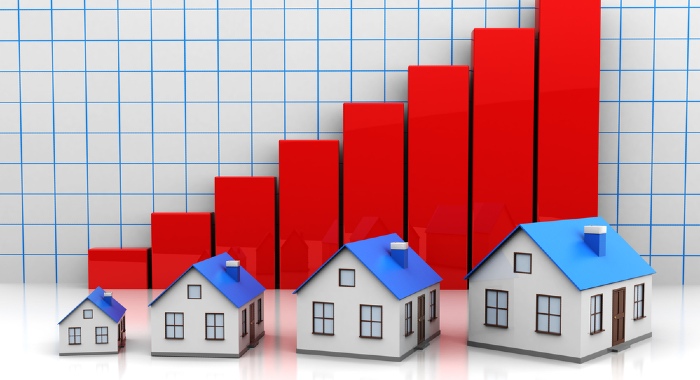In September, house prices climbed at the fastest annual rate since the result of the Brexit vote in 2016, according to Nationwide, the UK’s largest building society.
Nationwide reported that as buyers continued to take advantage of a rising market, the average UK house price rose by 5pc last month to £226,129, a record high, compared with the same month last year. The pandemic has effectively re-energised the housing market, helped by the return of demand after the UK-wide lockdown and the stamp duty holiday.
Sales were sustained even though economists forecast a steep rise in unemployment over the coming quarter. Prices increased by 0.9pc month on month in September after a jump of 2pc in August as housing market activity soared, Nationwide said.
Mortgage approvals during August rose to the highest level in almost 13 years, as revealed by separate data published on Tuesday by the Bank of England. Rival mortgage lender Halifax also reported record high UK prices in August.
Price hikes were seen across the UK, with the commuter towns around London as well as the South West of England registering increases of more than 5pc in the third quarter of 2020 compared with a year earlier. By contrast, the rate of annual growth slowed in Scotland and the North West over the same period.
Average prices in London hit a record high of £480,857 in September, making them 57pc higher than their 2007 levels, shortly before the onset of the global financial crisis.
Future capital growth a bonus
Robert Gardner, chief economist at Nationwide, commented that the bounce back in UK house prices reflects a number of factors, such as the release of pent-up demand and buyers who had decided before lockdown to move now progressing towards completion.
The stamp duty holiday, he added, is adding impetus by stimulating the demand for property. Changes in behaviour may also be encouraging activity as consumers reassess their housing needs and preferences after three months in lockdown.
However, he pointed out that the continuing pandemic is causing some to postpone moving home, as 19pc of those who had considered a move before the crisis have put their plans on hold, with 27pc of these citing concerns about the property market.
Mr Gardner concluded that as younger consumers are more likely than older people to have deferred plans, this may reflect worries about employment prospects.
Anna Clare Harper, CEO of asset manager SPI Capital, maintains that property both follows and affects economic confidence. But the basic drivers of housing demand are robust in an era of low interest rates, a reduced supply of new property coming onto the market and limited existing stock.
Investors and home buyers, she added, should remember that even cheap borrowing needs to be repaid and that future capital growth should be regarded as a bonus, not a guarantee.
House prices could be flat by end of 2021
Indeed, some economists forecast that the current surge in house prices may prove to be something of a damp squib, given that the Government’s support for the job market reduces substantially at the end of this month. And that according to independent forecasts collected by the Treasury, unemployment is expected to reach 8pc by the end of the year.
Furthermore, the stamp duty holiday for properties under £500,000 will expire on 31 March 2021, unless Chancellor Rishi Sunak opts to extend it in a delayed budget.
One leading economic forecaster, the EY Item Club, presents a scenario in which house prices could be around 5pc lower than now by mid-2021 as the economy worsens.
Hansen Lu, economist at consultancy Capital Economics is of the opinion that price gains are likely to slow as the pent-up demand currently driving the market dries up. Looking to the future, he believes the combination of a weak underlying economy and the end of the stamp duty reduction will slow house price growth to a standstill by the end of 2021.




